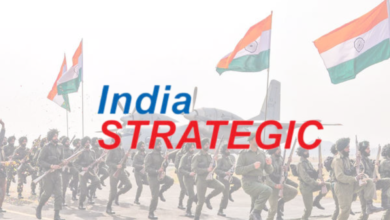No ‘tit for tat’ diplomacy; Moscow takes the high road
New Delhi. As a batch of 35 Russian diplomats, described by the United States as “intelligence operatives” headed back to Moscow on the first day of the New Year, American diplomats posted in Moscow did not have to take a similar hurried leave.
In a rare, surprising break from the normal diplomatic tradition of reciprocal punishment, Russian President Vladimir Putin opted to do nothing after the United States said it would expel 35 Russian diplomats and close a pair of Russian-owned properties in retaliation for Moscow’s meddling in the 2016 presidential election.
Putin, under pressure from his foreign policy establishment to take a firm stand, opted to wait and said he would see how U.S.-Russian relations develop under the new (Donald) Trump administration before planning “any further steps” on the issue.
The Barack Obama administration, in one of its final acts, announced sweeping new measures against Russia on December 29, retaliating against what U.S. officials have characterized as interference in the presidential elections. It ordered the expulsion of Russian “intelligence operatives” and announced a bunch of new sanctions on state agencies and individuals suspected to have hacked U.S. computer systems and place information to favour Trump.
The Obama administration sanctioned agencies and individuals connected to the hacking and closed off two compounds. The announcement culminated months of internal debate over whether and how to respond to Russia’s unprecedented election-year provocations, ranging from the hacks of the Democratic National Committee to the targeting of state electoral systems.
As the Kremlin bid farewell to Obama and hoped that a friendly Trump administration would provide opportunities to get sanctions removed, Putin chose to take the high road and appear magnanimous.
“We will not create any problems for U.S. diplomats,” Putin said in a statement December 30. “We will not expel anyone. We will not prevent their families and children from using their traditional leisure sites during the New Year’s holidays.”
Instead of sending the U.S. diplomats home, Putin invited their kids over for “the New Year and Christmas children’s parties in the Kremlin.”
Then he wished the Obamas a happy new year and bid season’s greetings to “Donald Trump and the American people.”
“Great move on delay (by V. Putin) — I always knew he was very smart!” Trump wrote effusively in a tweet December 30, again making public his admiration for the Russian leader.
Russia has denied and ridiculed accusations by Obama and the U.S. intelligence community that it sponsored hackers to steal and then leak sensitive information about Democratic candidate Hillary Clinton to sway the election in favour of Trump. Putin December 30 accused the United States of engaging in “irresponsible ‘kitchen’ diplomacy” and said Russia would retain its “right to retaliate.”
The Obama administration’s move to expel a large number of diplomats is virtually unprecedented in the post-Cold War world. It was a gesture reminiscent of the 1970s, or 1980s, when tit-for-tat expulsions between the Soviets and the Americans were par for the course.
Until Putin’s surprise decision, it appeared that there would be a familiar, tit-for-tat, tough response from the Kremlin.
Sources in Moscow told India Strategic that Putin’s “unexpected” decision was “a diplomatic masterstroke,” which underlined some of Putin’s “hard-nosed political acumen.”
Coming right after the Syrian ceasefire agreement, brokered primarily by Russia, it showed Putin as a committed “peacenik, who preferred the diplomatic, moderate approach” to global geopolitics.
Russian Foreign Minister Sergey Lavrov December 30 urged Putin for a matching response; expulsions of personnel (31 from the embassy in Moscow and four from the US Consulate in Saint Petersburg) and banning U.S. diplomats from using a dacha and a warehouse in Moscow. In a rare break from the diplomatic tradition of reciprocal punishment, Putin did not.
Instead he said he would decline to follow the recommendation and focus on improving relations with Washington after President-elect Trump assumes office on January 20.
Earlier, writing on Facebook, Russian Foreign Ministry spokesperson Maria Zakharova promised “official statements, countermeasures, and much else besides.” There was an expectation that the Kremlin was preparing another attack on perceived Western soft targets — perhaps on orphans, human rights groups, or the LGBT community. There were reports in the Russian media that the Anglo-American School of Moscow, a favourite of foreign diplomats, would be closed. Country residences for U.S. diplomats would be shuttered.
Putin’s reaction to “Obama’s sanctions”, posted on the Kremlin website, further marred the image of the outgoing US President in Russian eyes.
Russia would resist even the minimum expected diplomatic response of retaliatory expulsions, the statement read: “[Russia] will not resort to irresponsible ‘kitchen’ diplomacy but will plan our further steps to restore Russian-US relations based on the policies of the Trump Administration.”
There has been considerable expectation, euphoria even, among sections of the Russian establishment, at Trump’s election. The President-elect’s appointment of Kremlinophiles — including Rex Tillerson as secretary of state-designate and the mooted choice of Thomas Graham as ambassador to Russia — has completely altered the geopolitical landscape as far as Moscow in concerned.





